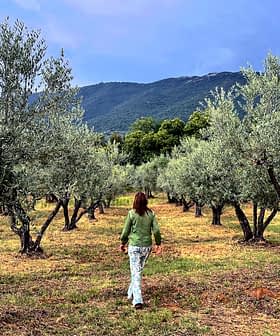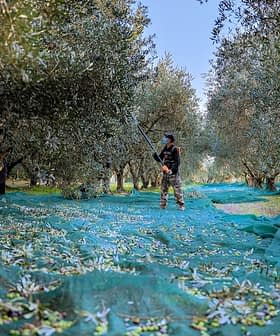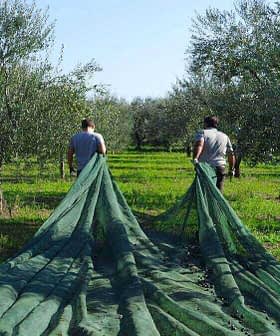
Afidol, the Interprofessional Association of Olives for France, is encouraging French olive oil producers to convert to organic.
France has eight appellations in the sunny Provence Alpes ‑Côtes d’Azur region but only 12 percent of olive farms have converted to organic farming.
Afidol says more olive oil producers should convert to organic farming and carry the coveted AB logo (Agriculture Biologique) for organic products on their labels.
At SETEVI, the International Exhibition for vine-wine, fruit- vegetable and olive oil sectors held in Montpellier November 28, Afidol Director Christian Argenson admitted that producing olive oil in France is expensive – 10 euros per liter against 2 euros in Spain. At the fourth conference organized by Afidol in conjunction with the Centre Technique de l’Olivier, (CTO) specialists covered a range of topics relating to organic olive oil production and marketing. It allowed amateurs, professionals and growers to discuss and share their experiences and innovations.
In his presentation Argenson said that although France had less sun and less heat than their southern neighbors this could be an advantage for the French. French olives are less likely to be attacked by the olive fly, he reasoned, and the results would be oils with more expression and intensity.
Afidol has committed to helping French growers in their conversion to organic farming and has recently produced a 15-minute video introduced by the President of AFIDOL, Oliver Nasles. The video informs oil producers what the AB label means and how to protect their olive orchards by limiting and selecting their inputs. Producers who have made the switch talk about their motivations, challenges and difficulties, as well as their views of future of French organic olive oil
Olive oil producer Jean Benoît Hugues from Les Baux-de-Provence, an elected member assigned to Afidol’s technical committee, firmly believes in organic olive oil. He said that the two major challenges are the olive fly and getting rid of the weeds. At his olive grove CastelaS, Hugues coats his olives, spraying them to hide them from the olive flies, rather like a construction painter.
He said, “we use an initial two layer technique and spray again after rain or high speed wind. We also need to apply paint during the growth of the fruits.”
Hugues doesn’t think olive oils will be a lot more expensive with the conversion to organic. “To me Bio or Organic is like leather seat in a luxury car, you can’t imagine one without the other! Our customers want and deserve the crème de la crème — olive cream of course!”
Sources:








